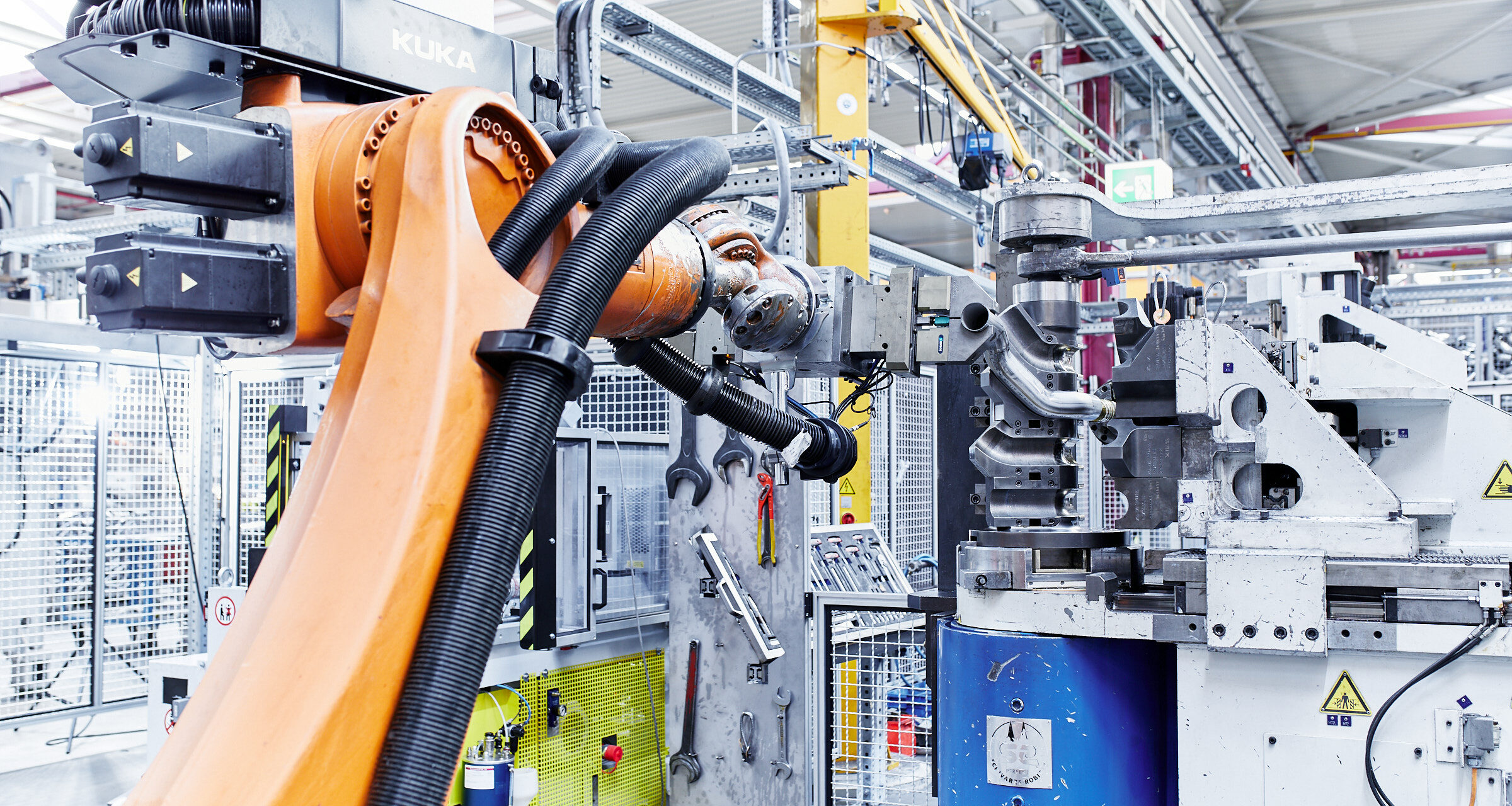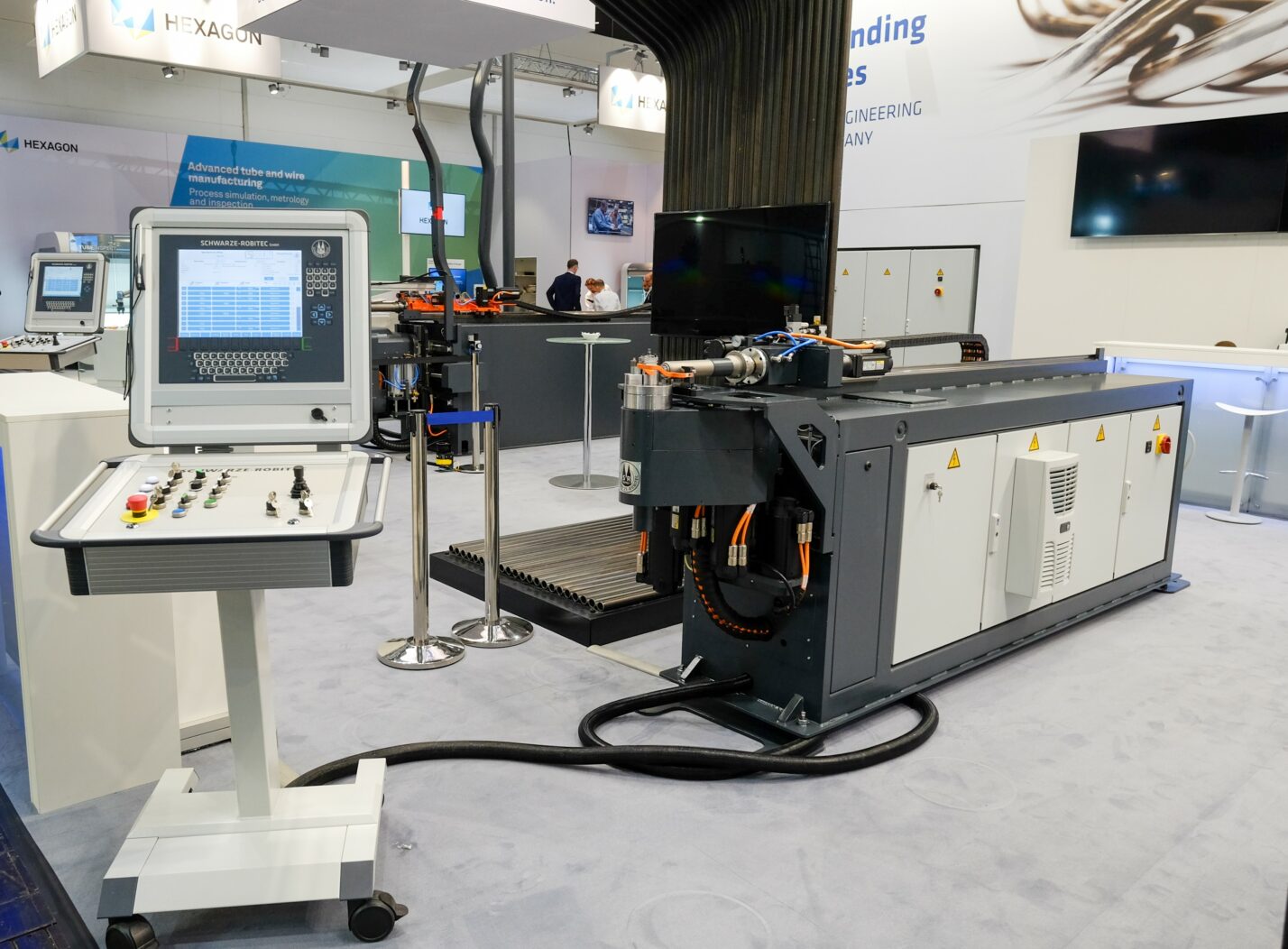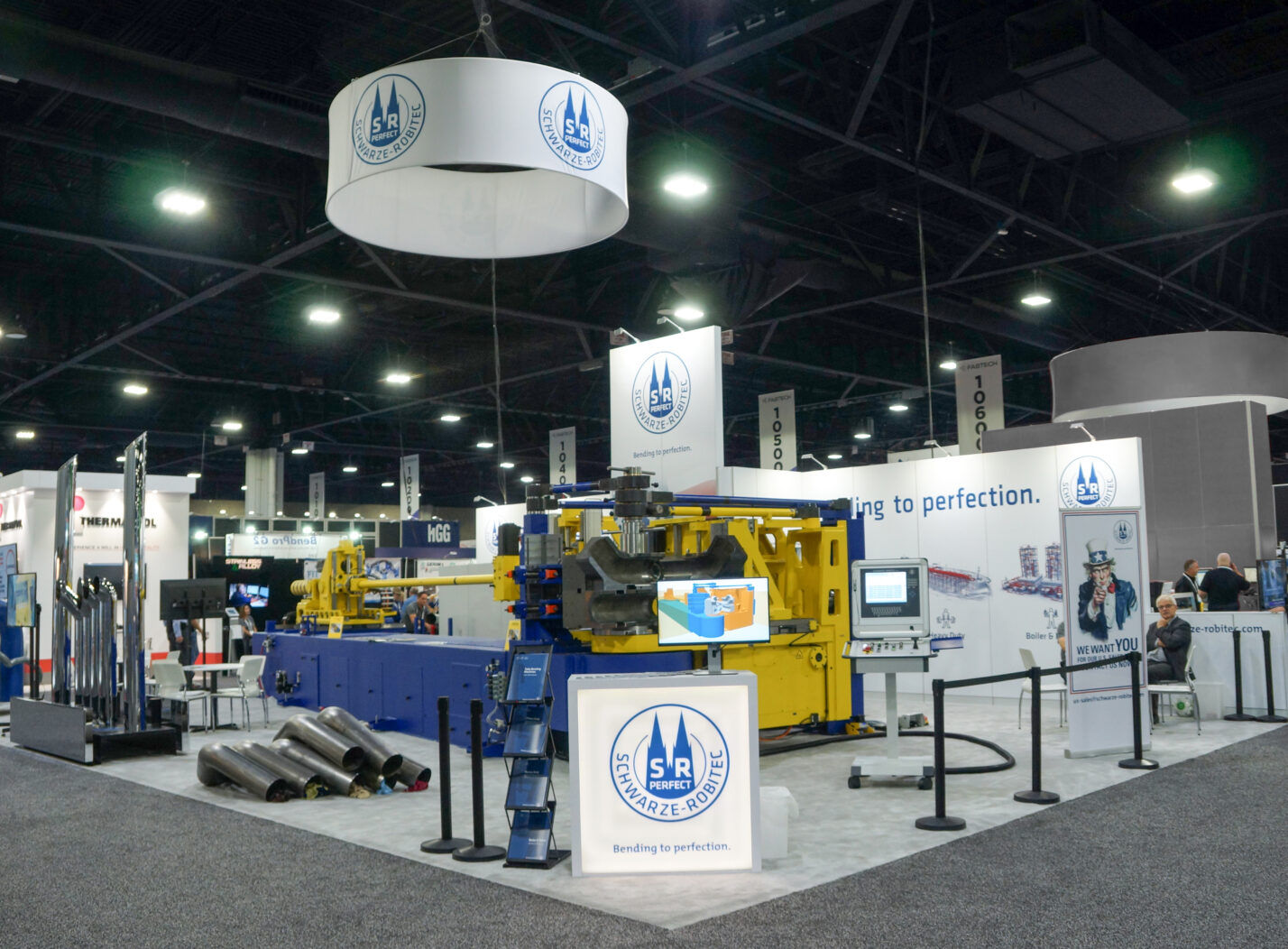
fischer group banks on Schwarze-Robitec: Decades-long partnership focused on fully automated tube bending
Some 75 Schwarze-Robitec tube bending machines are in operation worldwide at the fischer group. The manufacturer of longitudinally welded stainless steel tubes has been banking on the expertise and innovative technology of the Cologne-based specialist for tube bending machines for more than three decades. Together, the two partners look to tackle ever-evolving production- and product-related challenges in the auto industry – and thrive in the process. One aspect that’s becoming increasingly important is automating the tube bending process, including pre- and post-bending steps. That’s why Schwarze-Robitec’s fully automated bending cells currently play a central role in the partners’ collaboration.
Founded in 1969, the fischer group is now one of the world’s leading suppliers of longitudinally welded stainless steel tubes and components. Their primary field of application is exhaust systems, with the fischer group’s end customers including major tier 1 automotive suppliers. The company’s headquarters are located in Achern-Fautenbach, a town that sits on the edge of the German Black Forest. The facilities are home to a team of developers who successively work on innovations and new production processes for the company’s sites, which are spread across a total of nine countries worldwide. Today, its 2,700 members of staff process about 420 million feet of tubes per year, equating to just over 160,000 tonnes of material. Regardless of whether the products are destined for the Americas, South Africa or China, all of the company’s sites exclusively use Schwarze-Robitec tube bending machines and systems.
Partners face ever-evolving requirements
The companies’ shared history dates back to the 1980s. The fischer group, as it is known today, started out mainly manufacturing tubes and metal components. However, as the years went by, the further processing of the tubes became more and more important. Back then, founder Hans Fischer purchased his first hand-loaded bending machine for tubes with a diameter of 2.5 inches from Schwarze-Robitec. Since then, Schwarze-Robitec has supplied a further 75 tube bending machines to its partner.
Cars changed over a period of three decades – and so too did the installed components and subassemblies. Increasingly complex exhaust systems with larger diameters required bend-in-bend systems in more demanding shapes, with short intermediate lengths and small radii. The industry boomed. Production pressure was on the rise. All automotive suppliers needed to constantly increase efficiency. Schwarze-Robitec therefore increasingly supplied the fischer group with multi stack and fully electric machines. From the early 2000s, more and more fully automated tube bending systems were added to the mix. Compared with the hand-loaded machines, they facilitate multi-shift operation, since one member of staff can operate multiple machines at once. Fully automated bending cells have since become the focal point of the partnership. Today, about 50 of them are in operation at the fischer group worldwide. They typically encompass an “all-rounder” model in two different sizes: the fully electric, multi stack CNC 80 E TB MR and CNC 100 E TB MR for tubes with diameters of 3 and 4 inches, respectively.
Focus on full automation
The major role played by the fully automated bending cells is clear to see in terms of the number of machines in operation at the two sites in the Americas. At the sites in Waterloo near Toronto, Ontario, Canada, and in Manchester, Tennessee, United States, 19 of the 20 machines in total are integrated into fully automated bending cells. Thomas Prell is aware of just how much pressure the automotive industry is under. He serves as Vice President of the fischer group’s business in the US and in Canada. Opened in 1987, the Canadian site was the first branch that the company established outside of Germany. “Automotive suppliers need to meet stringent tolerance requirements for components, subassemblies and parts. Each tube has to be exactly the same as the next one. One of the most important factors is ensuring a high degree of repeatability – together with a short cycle time, as the industry is focused on efficiency and speed,” he says. Today, there is an increasing focus on expanding tube bending machines into fully automatic bending cells, and on incorporating more and more pre- and post-bending steps.
The typical layout of these bending cells, and the way they are mainly configured in the United States and Canada, involves a tube magazine with weld seam detection that comes into play prior to bending. The weld seam detection functionality helps to ensure the longitudinally welded stainless steel tube is positioned correctly. As part of a separate internal lubrication process, a lubricant film is evenly applied to the inside of the tube while it is still in the magazine. A robot integrated into the cell then feeds the tube into the machine and initiates the bending process. Once bending is complete, the robot removes the tube and places it onto a conveyor belt or chute, which then transports it away from the bending cell and onto the next processing step.
Depending on the local market requirements, Schwarze-Robitec can also integrate many additional processes into the bending cell on top of loading and unloading functionalities. For example, tube ends can be expanded, cut and calibrated after bending. Process optimizations of this nature often serve to further reduce cycle times. New auto industry requirements, standards and norms usually apply equally across all markets. Any further developments that materialize from Schwarze-Robitec’s collaboration with the development team at the fischer group’s headquarters in Germany are swiftly rolled out to plants around the world. This can be performed by the fischer group’s own employees or also by Schwarze-Robitec experts working directly on site, as Prell explains. Schwarze-Robitec can also access all the machines and cells remotely for error analysis, maintenance, updates and additional software configurations.
To make this possible, Schwarze-Robitec ensures that its tube bending technology always features state-of-the-art capabilities. The development of the NxG control generation marked an important milestone in this respect. The advantages offered by the NxG control system are most evident when it comes to complex bending tasks. During each bending sequence, it monitors the interaction between axes as part of a fully automatic process and optimally coordinates their movement. While a bend is being performed, the axes simultaneously prepare for the next step in the process. Depending on the component and tube geometry, the NxG control system can slash production times by 20 to 40 percent. Schwarze-Robitec also rolls out such fundamental innovations and ongoing core software updates to the fischer group’s existing machines. This ensures that all machines feature the very latest technology.
Rising to the challenge together
The partnership between the fischer group and Schwarze-Robitec has been shaped by constant development from day one. Prell explains how this has been the case at the Waterloo site in Ontario, Canada: “We maintain seamless dialogue as we look to continuously develop the systems. It’s really important for us that Schwarze-Robitec is always a step ahead in the technology department – both in terms of new solutions as well as with regard to the competition. And that’s something we see time and again – including at major trade fairs.” Innovations often emerge in direct response to market challenges that the fischer group faces at a given moment. By engaging in close cooperation and focusing diligently on the real market requirements of the user, Schwarze-Robitec incorporates new solutions into its tube bending machines. It may involve a really simple interface to the next robot in the bending cell – but it can also encompass new specially developed features for the fischer group, such as internal tube lubrication within the magazine. Mutual trust is the foundation, says Urs Kühni, Sales Manager at
Schwarze-Robitec and customer contact for many years. “The fischer group has evolved massively over the past decades – as have we.” New production requirements have arisen, and completely new manufacturing processes have emerged. “Part of this natural development process has been the fact that we are moving further and further away from individual bending machines towards fully automated bending cells,” Kühni adds. As a key development partner of the fischer group, Schwarze-Robitec is a pioneer in bending cell configuration and, as such, is also advancing the integration and connection of external systems such as robot systems.
Broad compatibility and easy tool changing
While the automotive industry is traditionally known for large-scale production, it is also increasingly requiring smaller batch sizes. A variety of ever-changing tools are needed, giving rise to challenges to be overcome. The fischer group primarily utilises two multi stack, fully electric machine models: CNC 80 E TB MR and CNC 100 E TB MR. All tools used need to be compatible with one another while also offering the versatility to be utilised on multiple machines in order to avoid downtime. However, compatibility alone is not sufficient to meet the required turnover times, since it’s also imperative that the machines are quick and easy to refit with accurate repeatability. The Quick-Tool-Unlock system does just that. Staff are able to quickly and easily add and remove tools without any additional aids. Repeatability and process security also increase as the machine operator no longer has to configure the tension bars, i.e. sometimes firmer, sometimes less firm. Now a standard feature in the Schwarze-Robitec’s portfolio, the rapid tool changing system was originally developed due to a fischer group requirement. The same is true for a special wiper die mount, which enables the wiper die to be put back into position swiftly and precisely after tool changing.
Since the fischer group only uses Schwarze-Robitec bending machines, it means that replacement and maintenance part storage is less complex. Sites receive the parts they need in no time at all, helping to avoid any protracted periods of machine downtime. Replacement parts are often stored directly on site at the facilities, with the company’s experts or Schwarze-Robitec specialists guaranteeing swift installation. The fischer group sites in Waterloo, Ontario, Canada, and in Manchester, Tennessee, United States, also benefit from being located near to Schwarze-Robitec’s US site in Grand Rapids, Michigan, in the event that assistance is required. For example, the fischer group’s most recent bending machines and cells were put into operation on site by the US team.

A well-established partnership on an equal footing
The fischer group and Schwarze-Robitec collectively tackle the ever-evolving challenges in the auto industry with the aid of innovative solutions and continuous refinements – and have been doing so for almost 35 years. “The fact that we’ve been collaborating for so long speaks for itself. As is also the case at my organisation, everybody involved at Schwarze-Robitec has got both feet on the ground. Our points of contact are very receptive to our requirements,” says Prell from the fischer group. Good dialogue, harmonious interaction and mutual appreciation are qualities that Schwarze-Robitec’s Urs Kühni also sees: “It’s a well-established partnership on an equal footing. The fischer group is a great client for Schwarze-Robitec, and is one that we can liaise with closely while also developing and trying out new solutions.”



